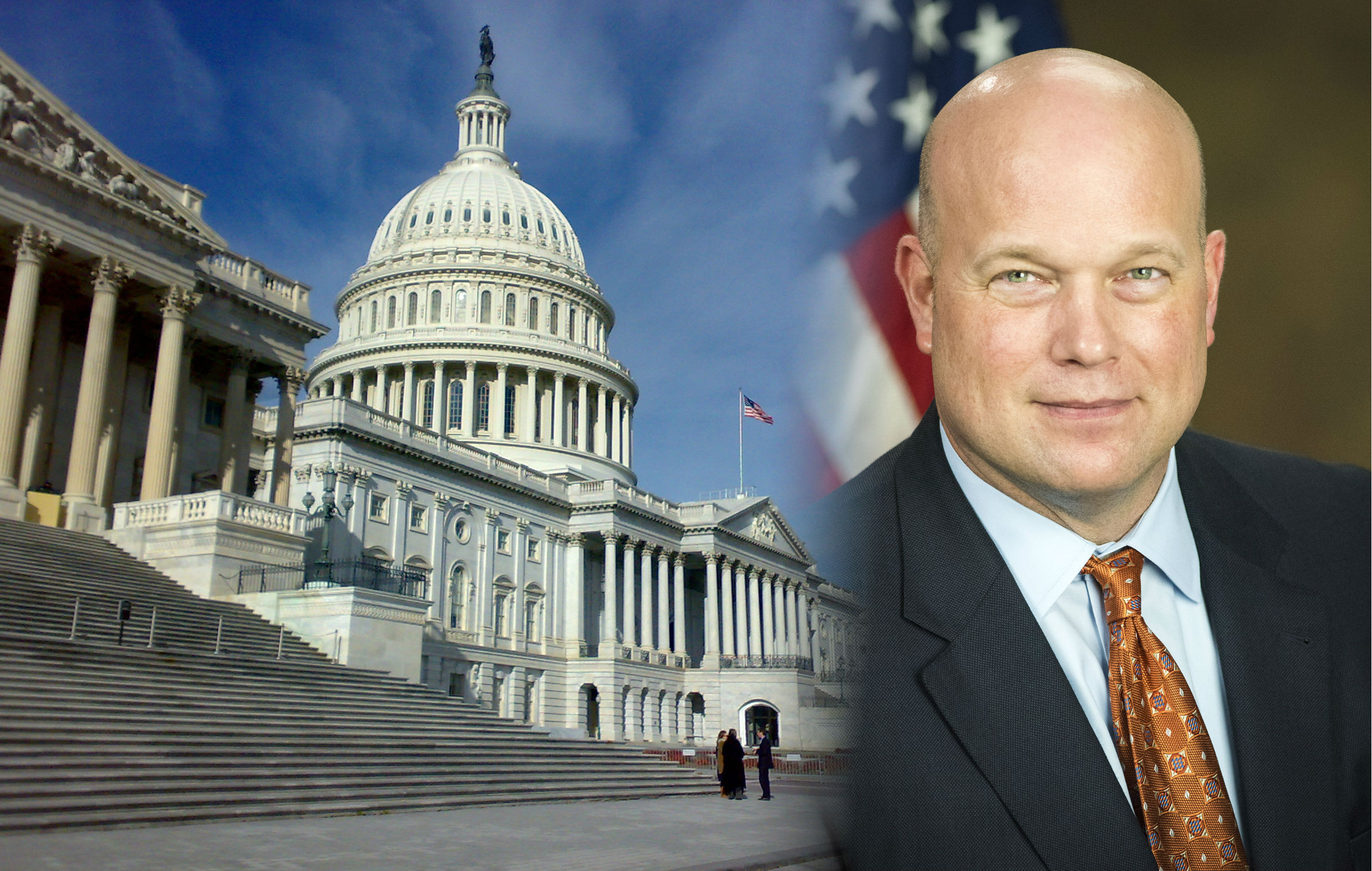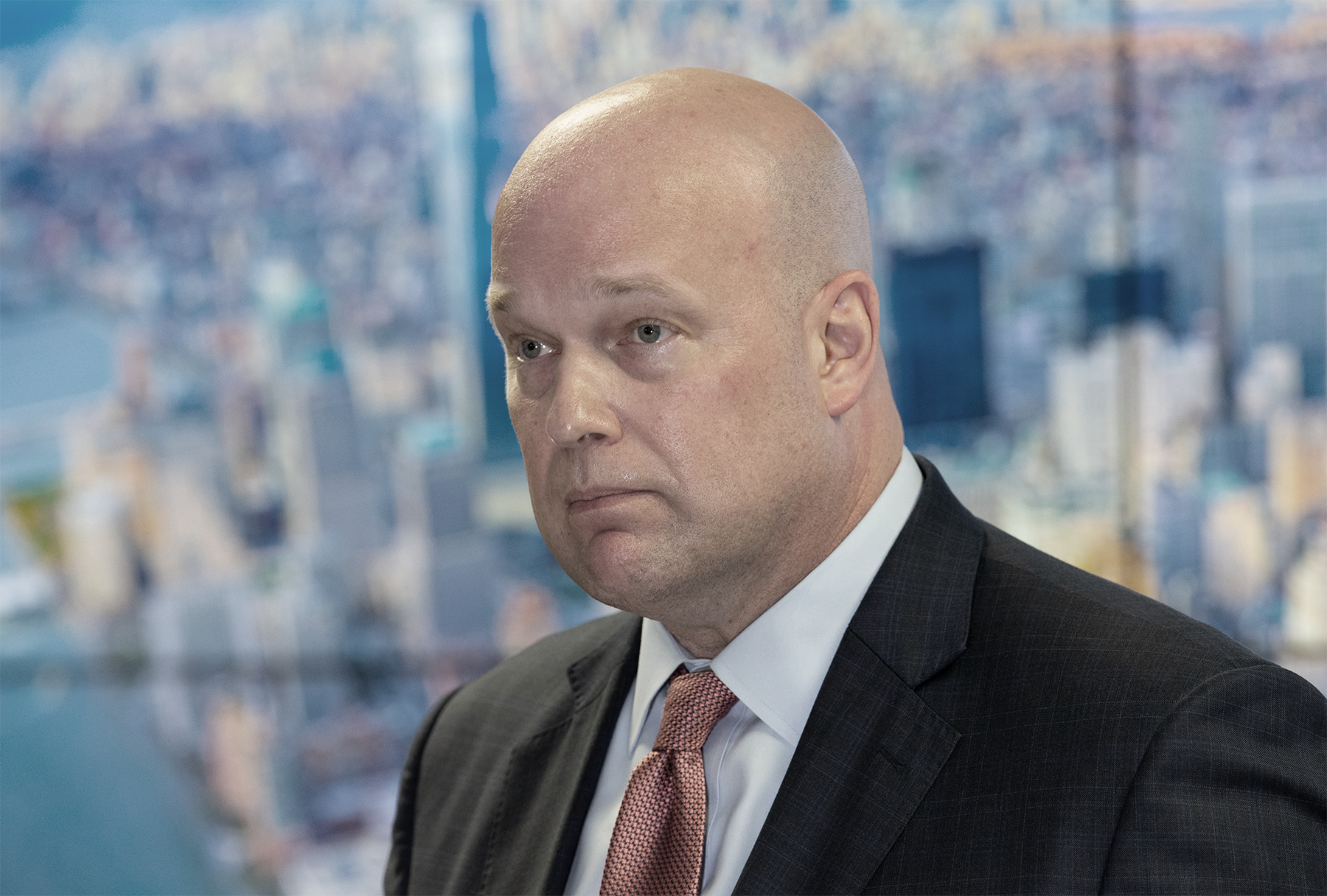
Former Acting Attorney General Whitaker’s Financial and Political Conflicts of Interest
From likely partisan conflicts of interest to concerns about dishonesty, American Oversight continues to investigate Matthew Whitaker’s tenure as acting attorney general. We’ve called on multiple federal offices to look into potential violations of the Hatch Act as well as his failure to disclose political contributions he received during his time at the Justice Department.

Background
When President Donald Trump fired Attorney General Jeff Sessions immediately after the 2018 elections, he appointed Matthew Whitaker, Sessions’s chief of staff, to take his place. The Department of Justice failed to release Whitaker’s financial disclosure reports until nearly two weeks after his November 7 appointment — after American Oversight called for the files to be made public — despite serious questions about Whitaker’s ethics and potential conflicts of interest.
As the nation’s top law enforcement officer, the attorney general should be above partisan politics, and the DOJ has long held political appointees to a high standard of nonpartisan behavior.
According to news reports and filings with the Federal Election Commission (FEC), Whitaker received multiple political contributions in early 2018 — after he joined the DOJ — in an apparent violation of the Hatch Act, which prohibits federal employees from knowingly soliciting, accepting, or receiving any political contributions.
In January and February 2018, contributions totaling $8,800 were made into a campaign account that had remained active for the past four years following Whitaker’s unsuccessful 2014 run for the U.S. Senate. In November 2018, American Oversight called for the Office of Special Counsel, which oversees enforcement of the Hatch Act, to investigate Whitaker for this potential violation.
The FEC records also revealed that Whitaker made a personal loan to his former Senate campaign in 2014, of which $49,187.37 remained unpaid. According to Office of Government Ethics guidance, Whitaker should have listed the loan as an asset on his financial disclosure forms — but the documents released in late November 2018 did not include any reference to the loan.
American Oversight sent a letter to the Office of Government Ethics and the DOJ’s Departmental Ethics Office on Nov. 21, 2018, calling on them to investigate the omission, and sent a letter to the Office of the Special Counsel calling on it to investigate possible Hatch Act violations. The same day, the Office of Special Counsel confirmed that it had opened a case file on possible Hatch Act violations by Whitaker in response to American Oversight’s request.
In addition to questions about Whitaker’s conflicts of interest and financial disclosures, American Oversight also filed multiple Freedom of Information Act requests in the weeks after Whitaker’s appointment, seeking DOJ communications about his hiring, his correspondence with Congress and outside groups, and any communications he had about Special Counsel Robert Mueller, whose investigation into Russian interference in the 2016 presidential election Whitaker publicly criticized while serving as Sessions’s chief of staff. On Feb. 14, 2019, William Barr was sworn in as attorney general, and Whitaker took a counsel position at the DOJ until his resignation a month later.

